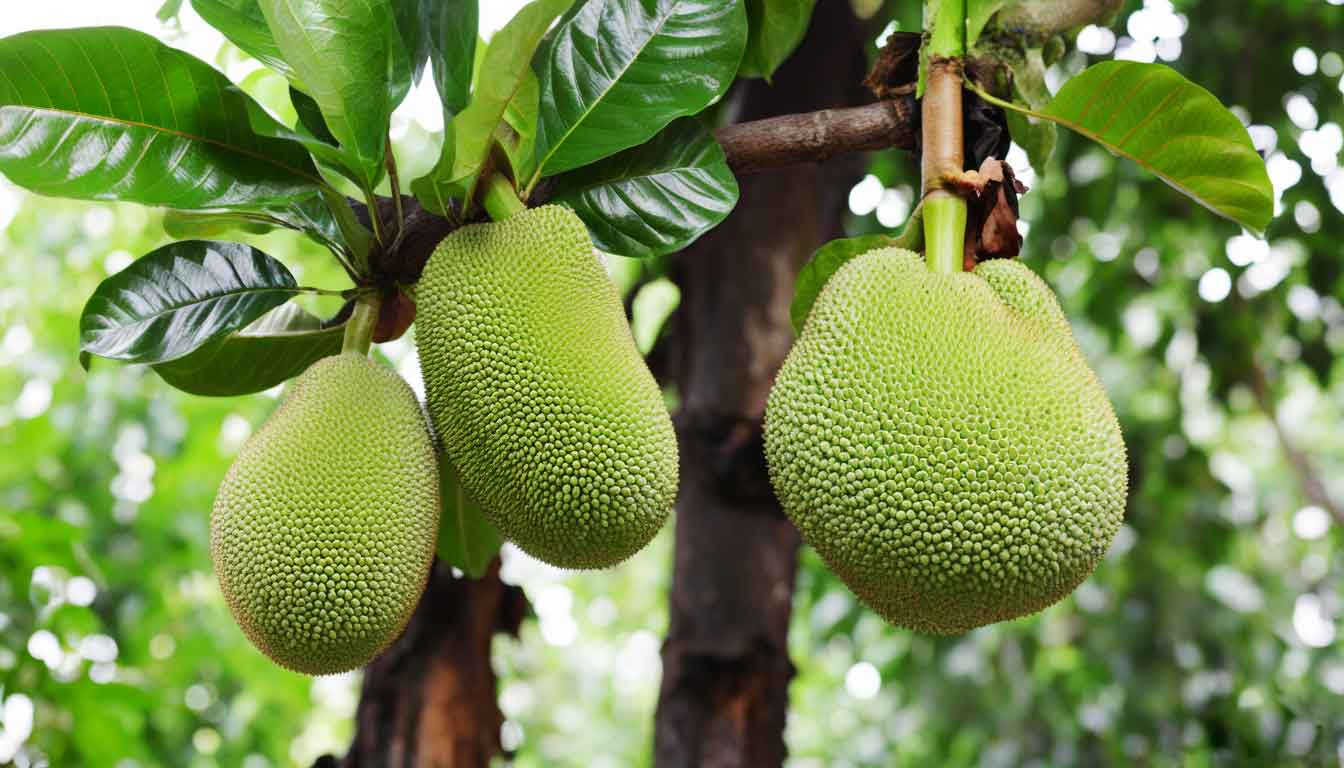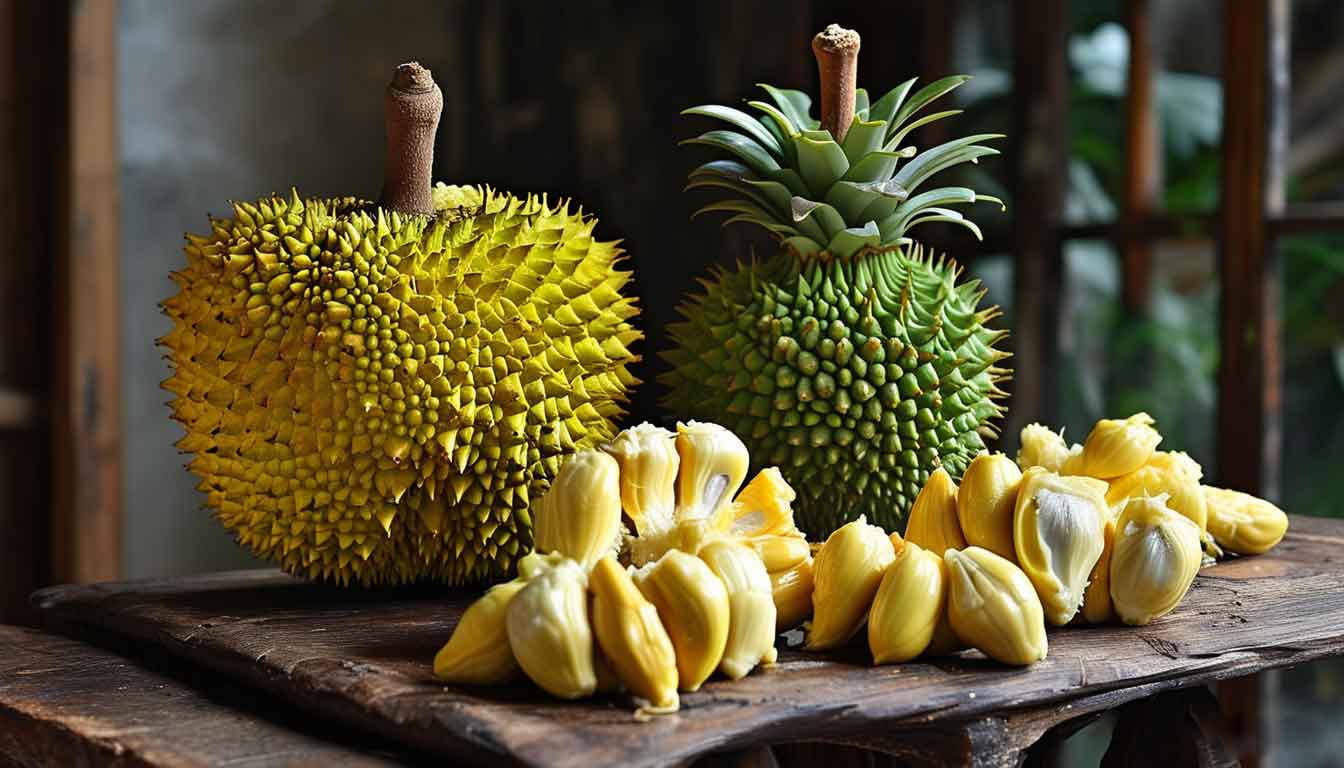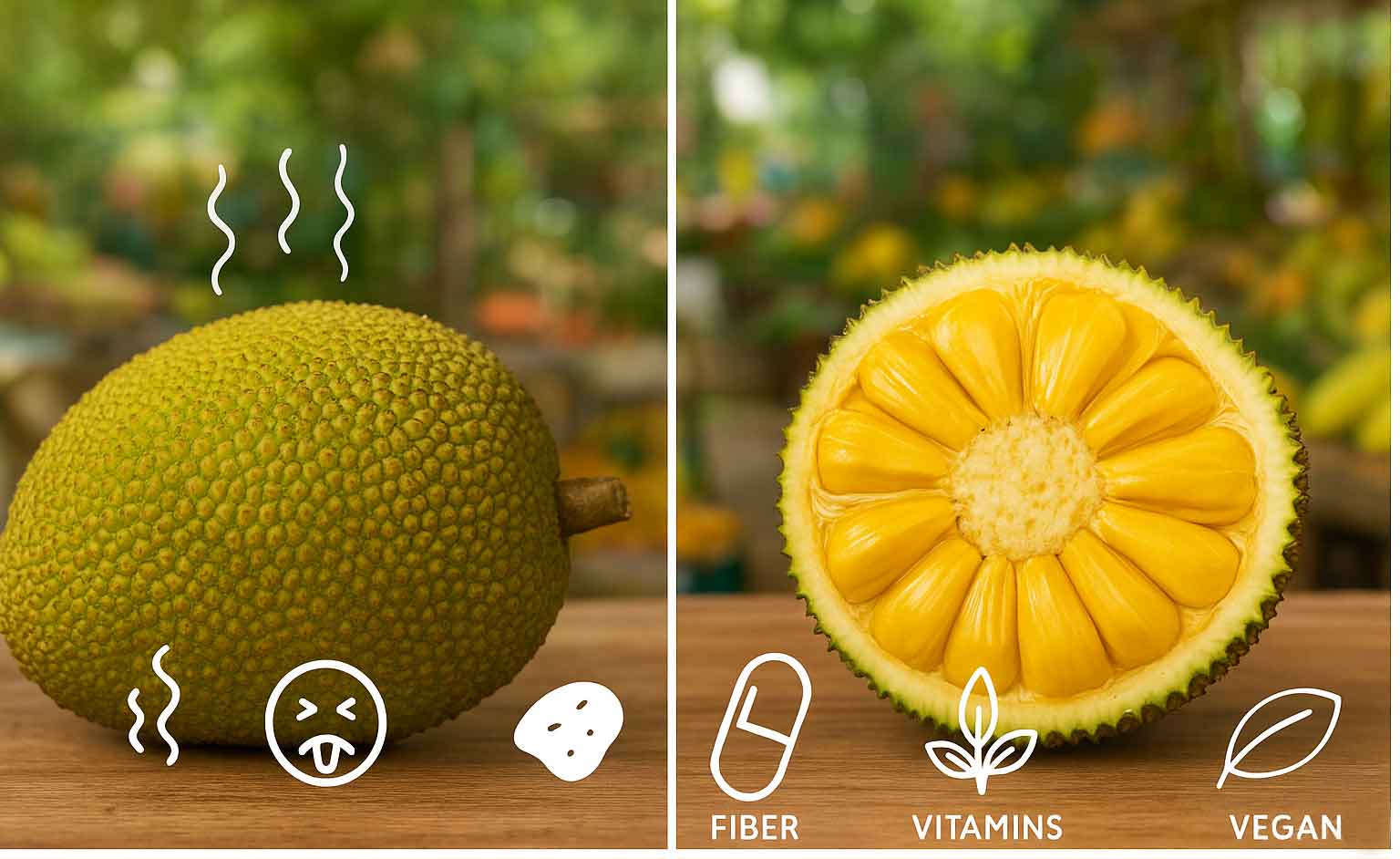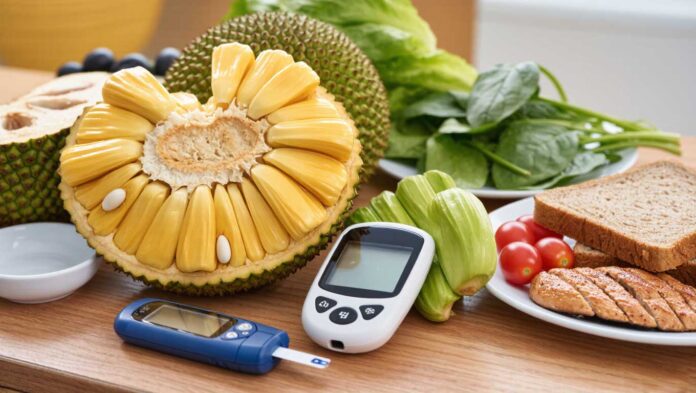Can Pregnant Women Eat Jackfruit? Here’s Everything You Should Know
Pregnancy is a beautiful journey filled with excitement—and a lot of questions, especially about what to eat. One fruit that often leaves expecting mothers confused is jackfruit. You might hear conflicting opinions: some say it’s healthy, while others warn against it.
So, can pregnant women eat jackfruit? Let’s explore the facts to help you make the right decision.
Is Jackfruit Safe During Pregnancy?
Yes, jackfruit is generally safe for pregnant women when eaten in moderation. There is no scientific proof that it causes miscarriage or other pregnancy-related complications. Most of the concerns are based on old myths, not facts.
That said, it’s always best to talk to your doctor before adding anything new to your pregnancy diet.
Nutritional Value of Jackfruit
Jackfruit is loaded with important nutrients that are good for both mom and baby. Here’s what 100g of jackfruit contains:
| Nutrient | Amount |
| Calories | 95 kcal |
| Protein | 2.5 g |
| Fat | 0.64 g |
| Carbohydrates | 23.25 g |
| Fiber | 2.5 g |
| Potassium | 191–407 mg |
| Vitamin C | 7–10 mg |
| Vitamin A | 175–540 mcg |
| Calcium | 20–37 mg |
| Magnesium | 27 mg |
| Sodium | 2–41 mg |
Jackfruit also contains iron, folate, niacin, and phytonutrients—all important for a healthy pregnancy.
Health Benefits of Jackfruit in Pregnancy
If you’re still wondering, can pregnant women eat jackfruit?—here are some health benefits that may convince you:
- Improves Digestion
High in fiber, jackfruit helps relieve constipation, a common issue during pregnancy.
- Boosts Immunity
Packed with vitamins A, B, and C, it supports your immune system and helps fight off infections.
- Supports Heart Health
The potassium and magnesium in jackfruit help maintain healthy blood pressure and heart function.
- Reduces Risk of Anemia
Its iron content supports red blood cell production, helping prevent anemia in pregnant women.
- Satisfies Sweet Cravings
Ripe jackfruit is naturally sweet and a great alternative to processed sugary snacks.
- Promotes Healthy Skin
Vitamin C supports collagen production, which helps keep your skin glowing and healthy.
- Protects Against Stomach Issues
Its phytonutrients may help reduce the risk of stomach ulcers and improve gut health.
How to Eat Jackfruit During Pregnancy
You can enjoy jackfruit in different forms:
- Ripe fruit – as a snack or dessert
- Jackfruit curry – cooked with spices for a flavorful meal
- Smoothies – blended with yogurt or milk
- Dried jackfruit – as a travel-friendly snack
Just make sure it’s fresh and fully ripe to avoid any digestive discomfort.
When Should Pregnant Women Avoid Jackfruit?
While jackfruit is healthy for most, there are certain situations when it’s best to avoid it:
- Allergies
If you’re allergic to latex or birch pollen, jackfruit might trigger a reaction. If you’ve never tried it before, start with a small amount.
- Digestive Issues
If you’re currently dealing with diarrhea or stomach upset, skip jackfruit until you feel better.
- Kidney Problems
Jackfruit is high in potassium. If you have kidney issues, eating too much could lead to an imbalance called hyperkalemia.
- Gestational Diabetes
Jackfruit contains natural sugars, so if you have gestational diabetes, it might raise your blood sugar levels.
Also, avoid spoiled or bruised fruit, as it could carry bacteria that are harmful during pregnancy.
Can You Eat Jackfruit in the Third Trimester?
Yes, it is generally safe to eat jackfruit during the third trimester too. However, always practice portion control and watch for any unusual symptoms.
Final Thoughts
So, can pregnant women eat jackfruit? The answer is yes—in moderation, and only if there are no underlying health concerns. It’s a nutritious, tasty fruit that can be part of a balanced pregnancy diet.
As with any food during pregnancy, it’s always wise to check with your healthcare provider before making it a regular part of your meals.
Disclaimer:
The information provided in this article is for educational purposes only and should not be considered medical advice. Always consult your doctor or a qualified healthcare professional before making any changes to your pregnancy diet or lifestyle, especially if you have existing health conditions or concerns








